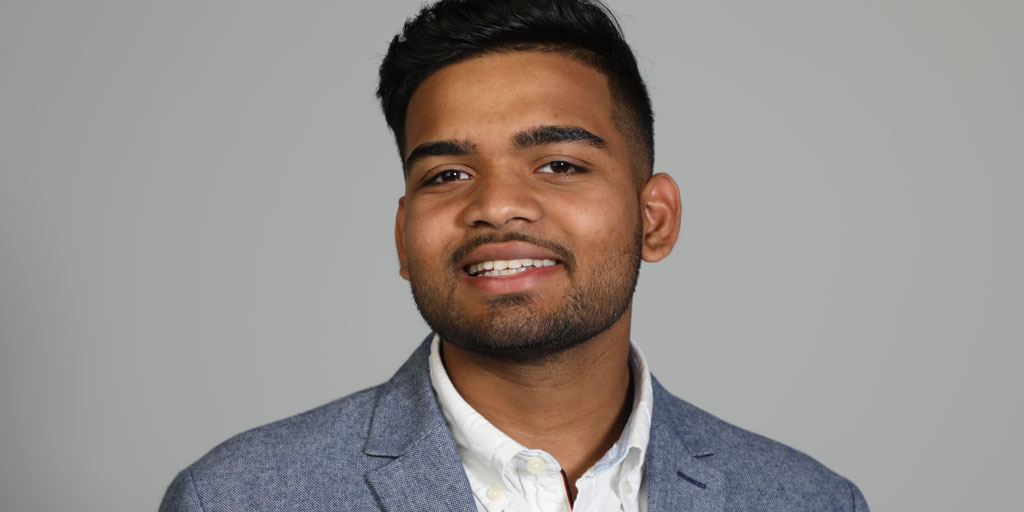This Baylor junior’s research helped discover a lack of diversity in cancer drug trials

It’s unusual at many universities for undergraduates to be able to conduct actual research. But having your work published in an American Medical Association journal while still an undergrad? That’s practically unheard of — except at Baylor.
Meet junior Anirudh Gothwal, who contributed to a study published last month in JAMA Oncology that revealed a lack of racial and ethnic diversity in clinical trials for cancer drugs — a finding that raises serious concerns about the effectiveness of cancer drugs in some patients.
Gothwal is credited as one of the study’s co-authors, alongside full-time researchers from Baylor, the University of British Columbia, MD Anderson Cancer Center, and the Fred Hutchinson Cancer Center in Seattle. The junior biology major maintained the study’s database and screened and reviewed articles analyzed in the study.
Together, the researchers found that between 2008 and 2018, fewer than 8% of cancer drug trials reported participation from the four major races in the United States (white, Asian, black and Hispanic). Since generic differences can affect how well a patient responds to a particular drug, the study’s findings have spurred questions about how effective cancer drugs may be for some patients.
“Ethics and equality in medicine are things you really don’t see too many people talking about,” says Gothwal. “Being from India, where research is scanty, discovering that minority groups were being vastly underrepresented, even in U.S. trials, was disheartening, to say the least. I think it is exceedingly important to shed light on the fact that health care truly is a right for everyone, regardless of their gender or race. I only hope that the research my colleagues and I have published will further forge efforts towards equality in health care.”
Baylor undergraduates are encouraged to immerse themselves in the university’s growing research efforts, as they work alongside faculty to illuminate solutions to significant challenges facing the world.
“I think that if there’s something in particular that interests someone, they should see it as an opportunity and explore it in these four years,” says Gothwal.
Sic ’em, Anirudh!
You might also like:
* Baylor research partners include Princeton, USC and NASA (Sept. 2019)
* Baylor faculty & students honored for career contributions and promising new research (April 2019)
* Why is Baylor increasing its emphasis on research? (Oct. 2018)

